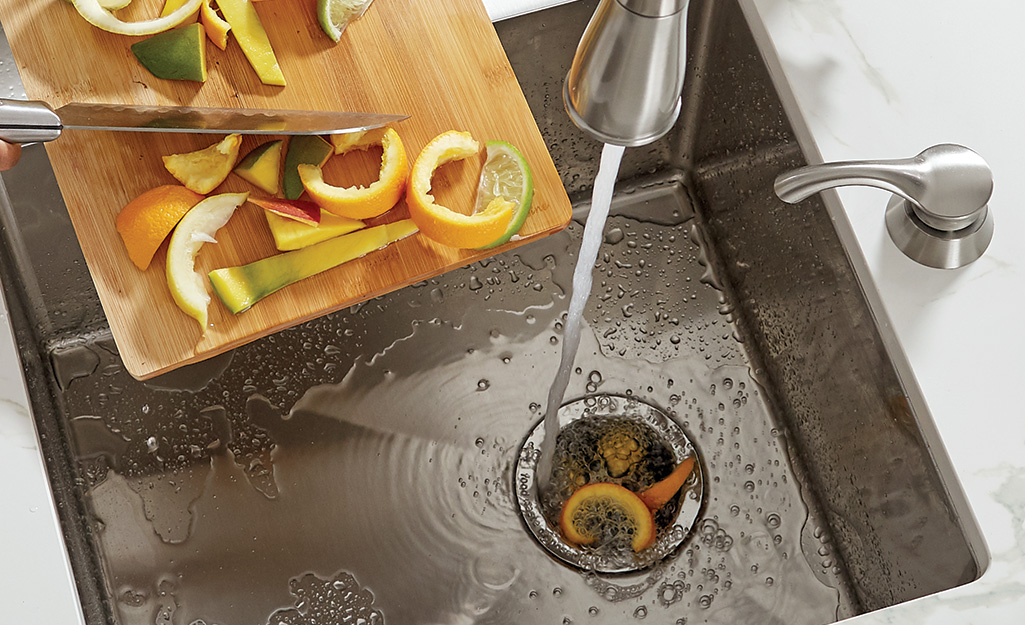Top Tips for Fixing a Leaking Waste Disposal Unit
Top Tips for Fixing a Leaking Waste Disposal Unit
Blog Article
We've noticed the article relating to Garbage Disposal Leaking From Bottom listed below on the internet and believe it made sense to relate it with you on this page.

Waste disposal unit are crucial cooking area devices that aid in taking care of food waste effectively. Nevertheless, a leaking garbage disposal can be a frustrating and unpleasant issue to deal with. The good news is, lots of leaks can be repaired conveniently with a few simple actions. In this article, we will certainly discuss just how to repair a leaking garbage disposal properly.
Introduction
Waste disposal unit are installed under kitchen area sinks and are made to shred food waste into smaller items, allowing it to go through the pipes system easily. While these tools are normally trustworthy, leakages can take place over time due to wear and tear, loose connections, or damages to the device.
Usual Sources Of Leakages in Rubbish Disposals
Worn Seals and Gaskets
Seals and gaskets play a critical role in preventing water from dripping out of the waste disposal unit. Gradually, these elements can deteriorate, leading to leakages around the disposal system.
Loose Links
The connections in between the waste disposal unit and the plumbing system can come to be loose over time, causing water to leakage out during procedure.
Fractures or Openings in the Disposal Device
Physical damage to the waste disposal unit, such as cracks or holes in the real estate, can likewise cause leaks.
Determining the Resource of the Leak
Prior to attempting to take care of a dripping garbage disposal, it is vital to identify the source of the leakage. This can normally be done through visual assessment or by performing simple tests.
Visual Assessment
Evaluate the waste disposal unit unit meticulously for any signs of water leakage. Pay close attention to areas around seals, gaskets, and connection points.
Testing for Leaks
One way to test for leaks is by running water through the disposal unit and looking for any kind of noticeable indications of leakage.
Tools and Products Needed for Fixing a Dripping Garbage Disposal
Before beginning the repair service procedure, gather the required tools and products, consisting of a screwdriver, flexible wrench, plumbing technician's putty, replacement seals or gaskets, and epoxy or patching material for fixing cracks or openings.
Step-by-Step Overview to Taking Care Of a Leaking Waste Disposal Unit
Turn Off the Power
Prior to attempting any repair services, make sure that the power to the waste disposal unit unit is switched off to stop the danger of electrical shock.
Locate the Leak
Recognize the exact location of the leak and establish the reason.
Tighten up Connections
Use a wrench to tighten any type of loosened links in between the disposal device and the plumbing system.
Replace Seals or Gaskets
If the leak is due to worn seals or gaskets, remove the old components and replace them with new ones.
Patching Cracks or Holes
For fractures or holes in the disposal unit, usage epoxy or an ideal patching product to secure the damaged area.
Testing the Waste Disposal Unit After Repair
Once the fixing is total, evaluate the garbage disposal by running water via it to make sure that the leakage has actually been solved.
Preventive Upkeep Tips to Stay Clear Of Future Leakages
To prevent future leaks, it is essential to execute normal maintenance on your garbage disposal. This consists of maintaining it clean, avoiding putting non-food items or difficult objects down the disposal, and occasionally looking for leaks or various other problems.
Conclusion
To conclude, repairing a dripping waste disposal unit is a fairly uncomplicated process that can be finished with fundamental devices and materials. By complying with the steps detailed in this post and exercising preventative upkeep, you can maintain your waste disposal unit in good working condition and prevent costly repair work in the future.
HERE’S HOW TO FIX YOUR GARBAGE DISPOSAL
WHAT TO DO IF SOMETHING IS STUCK IN YOUR GARBAGE DISPOSAL
If the impeller won’t turn, there’s probably something stuck in the disposal. It could be a steak bone or peach pit, although plumbers report pulling all sorts of inappropriate objects out of disposals, such as bottle caps or aluminum foil. Make sure power to the disposal is off, and look inside to see if you can see the source of the jam.
Never stick your fingers in a disposal. Pull out anything you see with tongs or pliers.
If the disposal still won’t work, it may be time to call a plumber or consider buying a new disposal. GEM Plumbing & Heating is here for all of your garbage disposal needs.
WHAT TO DO IF YOUR GARBAGE DISPOSAL DRAIN IS CLOGGED
Take everything out from underneath your sink and put a bucket or other container under your disposal to catch any water that drains out. Disconnect your disposal from the power supply. If it’s plugged into a wall outlet, unplug it. If it’s hardwired into an electrical box, go to the electrical panel and turn off the breaker for the disposal. Pour ¼ cup of baking soda into the drain, followed by ½ cup of white vinegar. Give the solution a few minutes to fizz and do its work. Look into the disposal with a flashlight to see if you can see an object that might be causing the clog. If you see it, remove it using tongs or pliers. MORE TIPS ON DEALING WITH A CLOGGED GARBAGE DISPOSAL
Never use drain cleaner in a garbage disposal. It can damage the plastic parts inside the disposal. You can also be splashed with the caustic liquid while working to clear the clog. Beware! Never stick your fingers into a garbage disposal. Trust us — not a good idea. In many instances, your dishwasher drains through your garbage disposal. This allows the disposal to grind any large food particles that may be drained out of your dishwasher. There are some jurisdictions, however, where the plumbing code prohibits such a connection. WHAT TO DO WHEN YOUR DISHWASHER DRAINS THROUGH THE DISPOSAL
Run some water in the sink so your plunger has at least a ½-inch of water to create a seal and plunge vigorously up and down several times. You may need to repeat this several times. Run hot water down the drain to clear any residue that remains.

As a devoted person who reads on Why Is , I was thinking sharing that segment was really helpful. Sharing is caring. You won't know, you could be doing someone a favor. Thanks for going through it.
Schedule Estimate Report this page